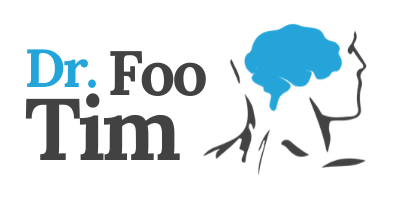Twilight Years
I’ve got two very different stories from two very elderly people.
The other day, one of my patient’s brought her 86 year old mom in to see me. She came in pushed on a wheelchair by the in-house nurse. She was a pleasant jolly lady actually. Not many elderly come in for chiropractic care in Singapore and this case is like most others: their children took the leap first, had a positive chiropractic experience. Then subsequently wanted to have their elderly parents checked.
Mdm Tan was experiencing low back pain, she complained that she just doesn’t have strength in her legs. And she couldn’t lift her right shoulder. Because of this, the stay-in nurse is the one feeding her and helping her to the toilet. “It must be quite challenging”, I commented out loud and met with the eyes of her care-giver who reciprocated with a look of agreement. Elderly who appear very friendly, can also have a unfriendly sometimes even bitter, aggressive side that they don’t show to strangers. Frankly, we all do.
My heart broke when I saw her x-rays. Metal rods were already screwed into her low back to stabilise a very obvious curve. After extensive assessments, it was time for therapy.
Just getting her onto the chiropractic bed was a struggle.
We managed to get some movement in her back, and she was able to extend and lift her arms after the session. But I mentioned to her children that her care now is focused on improving her baseline quality of life only. To allow her to cope as best as she can. Drastic change should not be expected. While the healing potential is still there, the years of degeneration and neglect have significantly hampered her ability to recover.
The other elderly gentlemen is my mentors father. John was in his 90s but he ate well, moved often (danced even), and it was part of the whole family’s culture to visit a chiropractor regularly. (That is the reason why my mentor became a chiropractor actually!) His wife, like many of his friends, had already passed on, but he was still very engaged with his huge family.
One morning he ask his children, grandchildren, and great grandchildren to gather in the evening at his place. When the time came, the whole place was packed. On hindsight, most of them already knew what was going to happen.
He went on to tell everybody present how much he loved everyone, thanked them for the love they showered him, and how proud he was of each them. He felt that his life was complete and his purpose had been fulfilled, above and beyond what he could ever dream.
And he told them that, it was his time to go. Not with regret but with a heart full of joy.
The following day, he passed away peacefully in his sleep.
His story opened my eyes to how life can be. Being brought up in Singapore, almost all the elderly I know at the end of their lives, do not have the mental alertness, the heart of gratefulness, and simply the mobility that John had. Instead of willingly giving up their spirit, they leave the earth with an organ failure of some sort, with a heart attack, with stroke, liver failure, degenerative brain conditions, or with a body that broke down due to toxic load from a constellation of chronic diseases. The family they leave behind are usually sad but also relieved because of the suffering they witness of their parent and grandparent. Often there is an element of financial strain associated with that.
Death was more of an escape then a transition to be celebrated.
It makes me think, what is so different in John’s life? Did he have something that we in Singapore somehow do not have?
The challenges faced with our aging population is not acute epidemics like in ancient history. The modern plagues are very often chronic diseases that have their roots in lifestyle choices. Diabetes, heart disease, cancer, osteoarthritis, are all not due to some invading pathogen, instead they are a breakdown of the body’s natural regenerative abilities.
Those that have quality of life, right to the very end, are often individuals that recognise the importance of proactive engagement in their health. Before any symptoms manifest. They are interested not in disease prevention, rather in health creation. Good health crowds out and leaves very little space for disease.
With Mdm Tan, did she arrive in that dependent wheelchair situation overnight? I always wonder, how her history would be different if she had a spine checked regularly, if she exercised and moved regularly, if she had someone in her life that encouraged her and pushed her not to give up when physical challenges come. A simple body principle is this: Use it or lose it. It is the basis for brain degeneration and muscle atrophy.
How will your story end? It has to begin long before the end actually comes.
Yours sincerely,
Timothy Foo
Doctor of Chiropractic (D.C.)
Healthy Lifestyle Advocate
www.DrTimFoo.com
PS: If you liked this story or have any feedback, feel free to start a conversation with me on facebook or instagram =)
Reach out to me on social media, I would love to get to know you.

